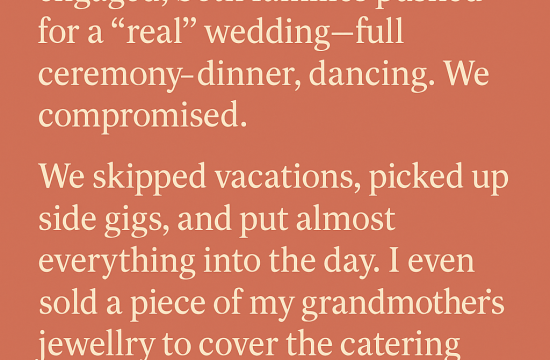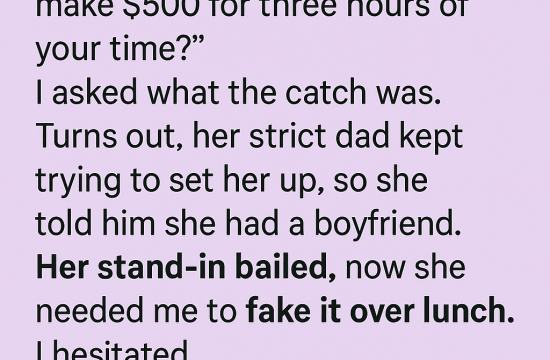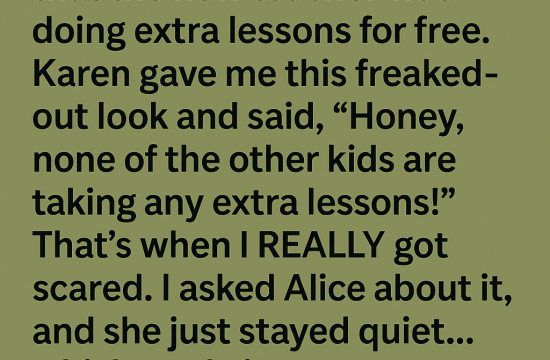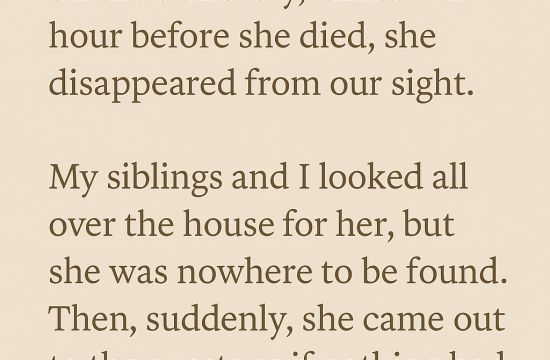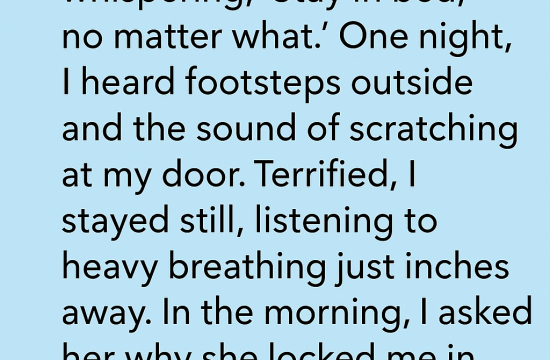Chuck Harris grew up in the oldest house on the block—a creaky, sprawling place that had been in his family for generations. The mansion was spacious but precarious, with peeling paint and crooked beams that whispered stories of the past. Chuck’s father, a stubborn man with a soft heart, refused to sell it or build something new.
“This house is part of our family,” his father would say, running a calloused hand along the banister that had been polished by decades of hands. “It’s our roots. I want you to raise your kids here, just like I’m raising you.”
When Chuck was twelve, the ridicule started to sting. Other kids mocked him for living in a “haunted shack.” One day, after another round of teasing at school, he blurted out to his dad, “Why don’t we move? You’re always fixing this place up. Wouldn’t it be easier to build a new house? Maybe then they’d stop making fun of me.”
His father crouched to his level, eyes serious but kind. “Listen, Chuck. People will always have something to say. Let them. They live their lives, and we live ours. This house means something, and someday, you’ll understand. Promise me you’ll take care of it.”
Chuck swallowed hard and nodded.
Years passed, and life dealt Chuck a series of blows. At twenty-two, he lost his father in a car accident. His mother, already frail, succumbed to heart disease six months later. Chuck, now alone in the world, buried his grief in his work as a carpenter. The old house stood unchanged, a relic of his family’s stubborn pride, but it began to crumble faster than he could patch it.
Eventually, the whispers started again—this time from neighbors and even from a girl he had been dating. “You live there?” she scoffed after visiting once. She never called again.
One evening, after another snide comment from a passerby, Chuck stared at the sagging porch and muttered, “Enough. I’m sorry, Dad, but I can’t do this anymore. I’m selling this place.”
But when he contacted a realtor, the truth hit hard: the house was in such poor shape that selling it would require extensive repairs. He didn’t have the money to demolish and rebuild, and no one would buy it as it stood.
His best friend, Sam, shook his head. “Then fix it, man. You’re a carpenter. Do what you can, little by little. Stop complaining and start rebuilding.”
And so Chuck began. Every spare hour went into sanding floors, repairing beams, and repainting walls. Days turned into weeks. One afternoon, as he tore up the rotten floorboards in an upstairs room, a beam collapsed with a crash. Chuck knelt down, heart pounding—and noticed something strange: a square outline beneath the boards, a trapdoor he’d never seen before.
He pried it open. A ladder descended into darkness.
“This has been here all these years?” he whispered, grabbing a flashlight. The narrow passage led to a hidden basement room, untouched for decades. Dust floated in the beam of light as his eyes widened: tables covered in old rags, drawers stuffed with tools and strange objects.
He shook out one of the rags—and a heavy gold ring clattered to the floor. His breath caught. One drawer after another revealed more treasures: bracelets, pendants, brooches. Family lore said his grandfather had been a goldsmith, but Chuck had never seen proof. Until now.
“This… this is incredible,” he murmured, running his fingers over the intricate designs.
He spent hours cataloging the items, heart racing with every new find. In the end, he sold the collection to a local collector and museum owner, earning enough money to not only repair the house but fully restore it.
And then he made a decision. Instead of selling, he embraced his heritage. Chuck transformed the mansion into a living museum, preserving its vintage charm while making it safe and beautiful. When Sam visited again, his jaw dropped.
“Man, this is amazing! Feels like stepping back in time!”
Chuck grinned. “That’s exactly the point.”
Soon, word spread. Visitors from out of town came to marvel at one of the city’s oldest buildings. They snapped photos, admired the craftsmanship, and listened to Chuck tell stories of his family. He watched from the window sometimes, pride swelling in his chest.
During one of those tours, he met Jenny—a bright, kind woman from a nearby town. They started talking, then dating, and before long, she moved in with him. Together they watched the house fill with laughter and life again, proof that some promises are worth keeping.
What can we learn from this story?
-
Respect your roots and heritage. Chuck honored his father’s wish, and in doing so, uncovered a legacy that changed his life.
-
Live your own truth. No matter what others say, your story—and your home—are yours to shape.




